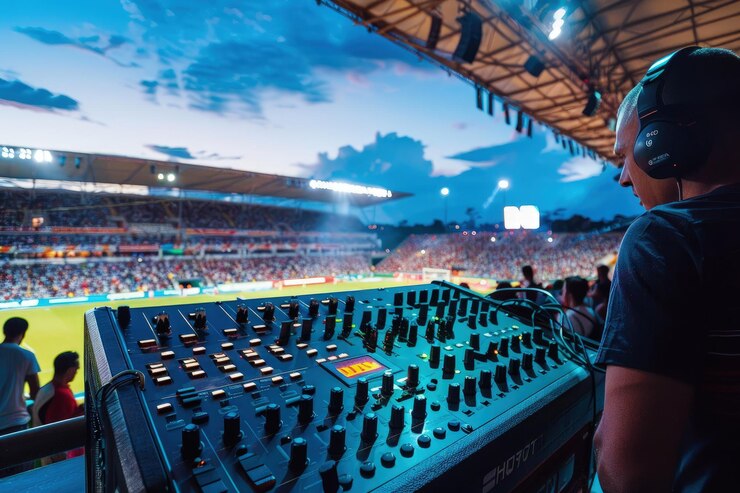Introduction
Supply sports events involves a complex web of logistics, coordination, and meticulous planning. From small local tournaments to international spectacles, the role of suppliers is crucial in ensuring that everything runs smoothly. This article will delve into the intricacies of supplying sports events, highlighting the key elements, challenges, and best practices to ensure success.
Understanding the Scope of Supplying Sports Events
Defining the Role of Suppliers
Suppliers are responsible for providing the necessary goods and services required for the smooth operation of sports events. This includes everything from equipment and merchandise to food and beverages, as well as specialized services like security and medical support.
Key Elements in Supplying Sports Events
1. Equipment and Gear
The backbone of any sports event is the equipment. This ranges from balls, nets, and rackets to more specialized gear for specific sports. Suppliers must ensure that all equipment meets the required standards and is available in sufficient quantities.
2. Venue Preparation
Setting up the venue involves providing seating, lighting, sound systems, and scoreboards. Suppliers need to coordinate with venue managers to ensure that all installations are done correctly and on time.
3. Food and Beverage Services
Catering to the needs of athletes, officials, and spectators requires a well-planned food and beverage service. Suppliers must ensure a variety of options, considering dietary restrictions and preferences.
4. Merchandise and Souvenirs
Event-specific merchandise and souvenirs play a significant role in enhancing the experience for attendees. Suppliers are tasked with producing and distributing these items, which also serve as additional revenue streams.
5. Security and Safety
Ensuring the safety of all participants and attendees is paramount. This involves coordinating with security personnel, providing necessary equipment, and implementing safety protocols.
Challenges in Supplying Sports Events
1. Logistics and Transportation
Transporting equipment, food, and other supplies to the venue can be a logistical nightmare. Suppliers must plan routes, consider storage facilities, and manage timely deliveries to avoid any disruptions.
2. Coordination with Multiple Stakeholders
Sports events involve multiple stakeholders, including organizers, sponsors, athletes, and vendors. Effective communication and coordination among all parties are essential to avoid any mismanagement.
3. Adherence to Standards and Regulations
Suppliers must ensure that all equipment and services comply with relevant standards and regulations. This includes safety standards, health regulations for food and beverages, and contractual obligations.
4. Managing Unexpected Situations
Unforeseen circumstances such as weather changes, equipment failures, or security threats require quick thinking and efficient problem-solving skills from suppliers.
Best Practices for Supplying Sports Events
1. Early Planning and Preparation
Starting the planning process early allows suppliers to address potential issues, secure necessary permits, and ensure that all supplies are ready well before the event.
2. Building Strong Relationships
Establishing strong relationships with vendors, contractors, and stakeholders is crucial. Trust and good communication can lead to better coordination and smoother operations.
3. Implementing Technology Solutions
Using technology for inventory management, real-time communication, and logistics tracking can streamline the supply process and reduce the risk of errors.
4. Continuous Monitoring and Evaluation
Regularly monitoring the progress of supply operations and conducting post-event evaluations help identify areas for improvement and ensure future events are even more successful.
Case Studies: Successful Supply Sports Event
Olympic Games
Supplying the Olympic Games involves coordinating with international suppliers, managing huge volumes of equipment, and ensuring everything meets the highest standards. Success is achieved through meticulous planning, international cooperation, and leveraging advanced logistics technologies.
Super Bowl
The Super Bowl requires extensive coordination for security, catering, merchandise, and more. Suppliers work closely with event organizers to create a seamless experience, often planning months in advance and conducting thorough rehearsals.
The Future of Supply Sports Events
Sustainability Initiatives
Future sports events are likely to focus more on sustainability. Suppliers will need to provide eco-friendly products, manage waste effectively, and implement green logistics practices.
Innovative Technologies
The integration of AI, IoT, and blockchain in supply chains can enhance efficiency, transparency, and security. These technologies will play a pivotal role in transforming how sports events are supplied.
Personalized Experiences
Suppliers will increasingly cater to personalized attendee experiences, providing custom merchandise, dietary-specific food options, and tailored services that enhance the overall event experience.
Conclusion
Supply sports events is a multifaceted task that requires careful planning, coordination, and execution. By understanding the key elements involved, anticipating challenges, and adopting best practices, suppliers can ensure the success of any sports event, from local games to global spectacles.
FAQs
What are the primary responsibilities of suppliers in sports events?
Suppliers are responsible for providing necessary goods and services such as equipment, food and beverages, merchandise, security, and venue preparation.
How do suppliers manage logistics for large sports events?
Suppliers manage logistics through early planning, efficient route management, real-time tracking, and coordination with transport providers to ensure timely deliveries.
What role does technology play in supplying sports events?
Technology aids in inventory management, logistics tracking, real-time communication, and improving overall efficiency in the supply chain for sports events.
How can suppliers ensure sustainability in sports events?
Suppliers can ensure sustainability by providing eco-friendly products, managing waste effectively, and implementing green logistics practices.
What are the challenges faced by suppliers in sports events?
Challenges include logistics and transportation issues, coordination with multiple stakeholders, adherence to standards and regulations, and managing unexpected situations.











